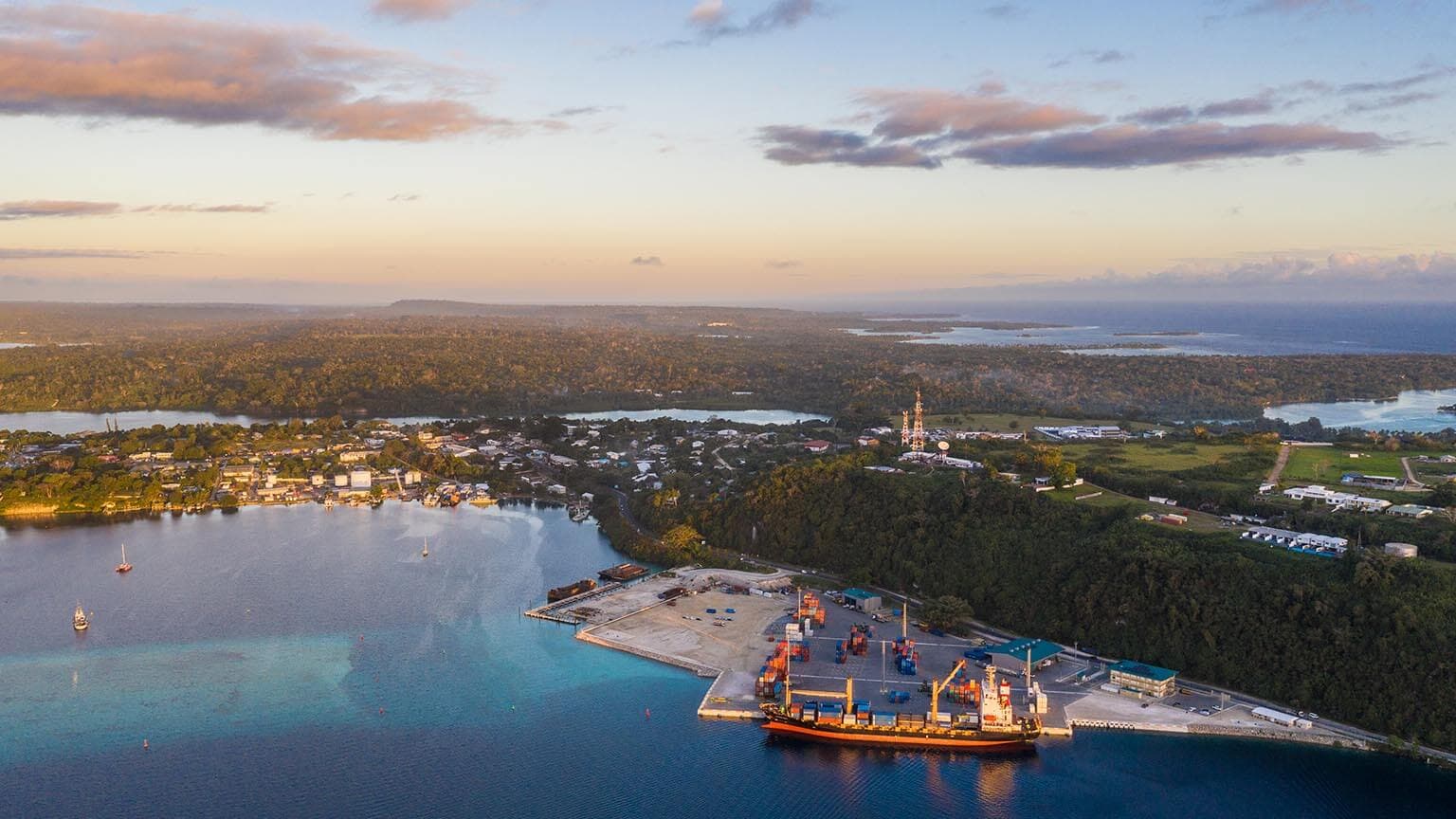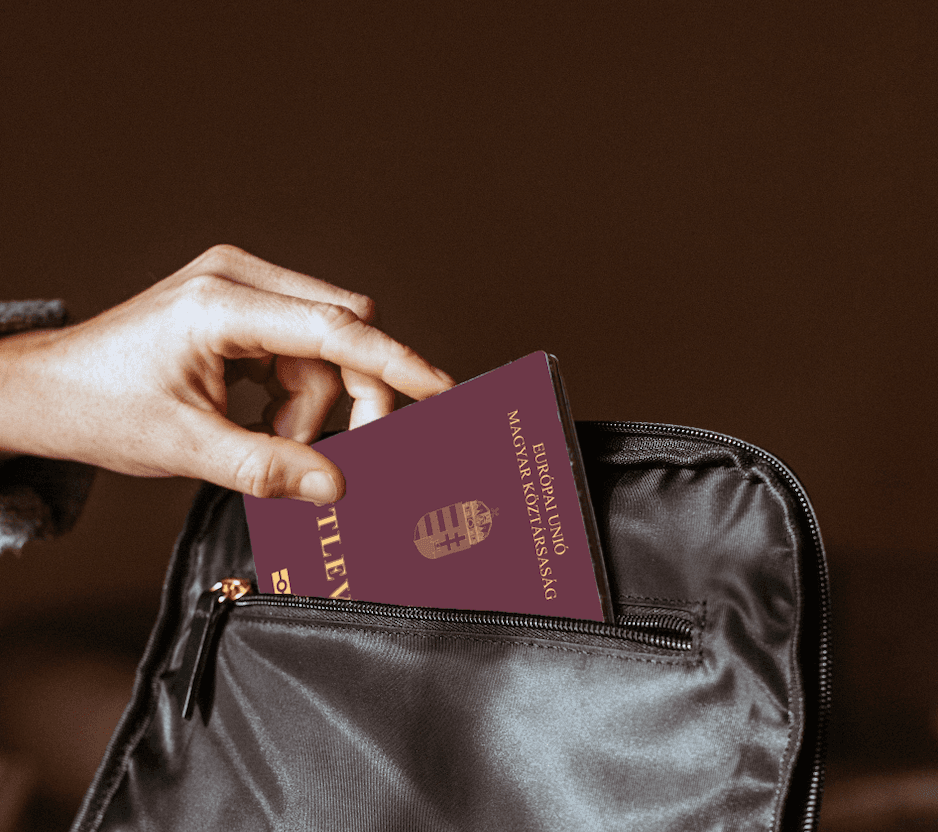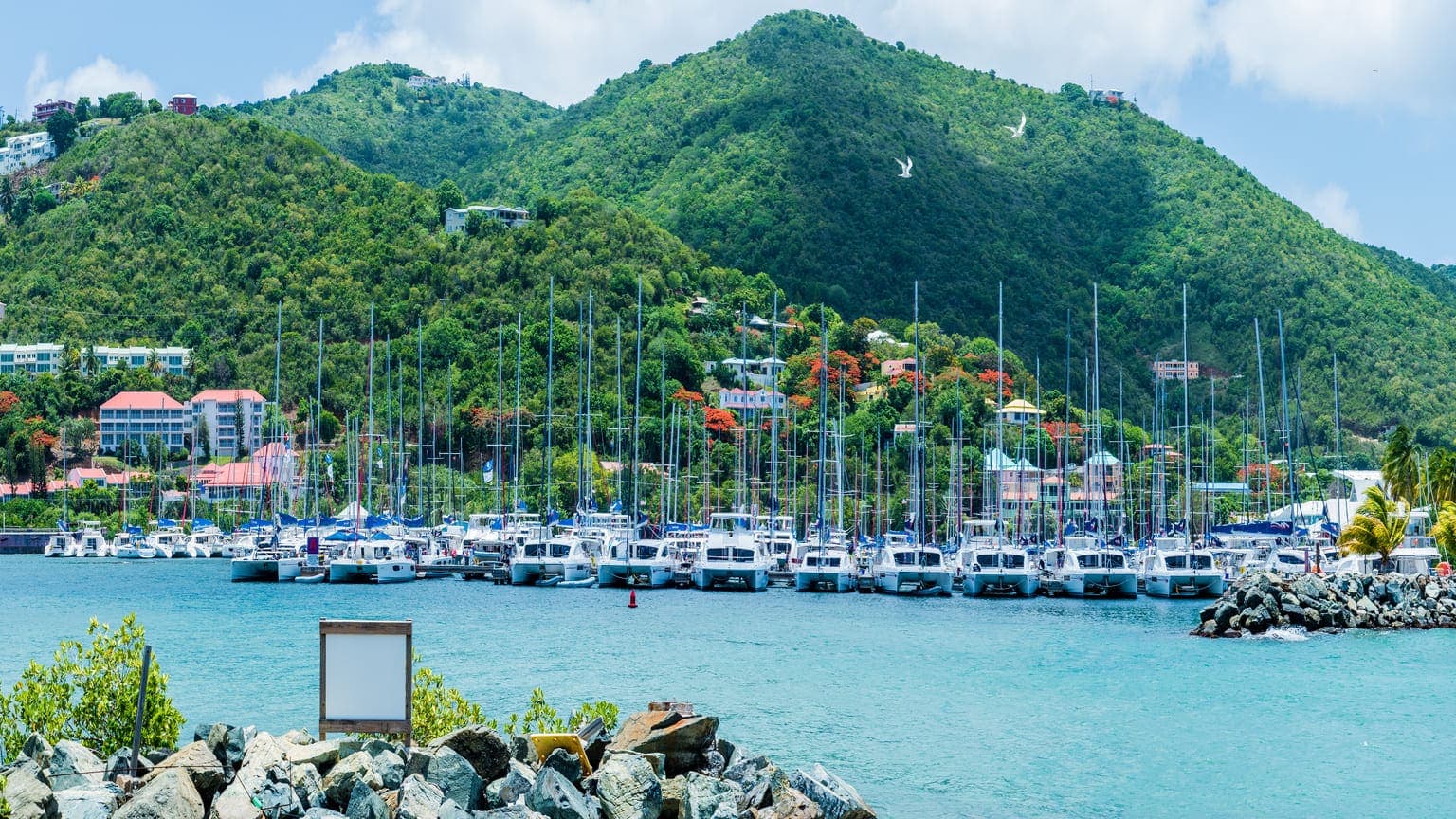Summary
The USA allows its citizens to have dual citizenship[1]. This means that Americans don’t need to renounce their original citizenship if they decide to get a second passport.
There are 63 countries that the USA allows to have dual citizenship with. The second passport allows living and working in a foreign country without restrictions.
What is dual citizenship for US citizens?
Dual citizenship means that you are a citizen of two countries simultaneously and have all the rights and responsibilities that their respective constitutions grant to citizens in both countries. It also means that you must obey the laws of both countries.
Having US dual citizenship can be beneficial if you want to live and work in another country and not deal with complicated visa applications. It also can open paths to traveling to more countries and relocating to another place if something happens in your country of residence.
Dual citizenship is permitted. The American government doesn’t require American citizens to renounce their US citizenship[2]. However, inside the country, a person with dual citizenship is considered a US citizen rather than a citizen of another country. Due to that, for example, US citizens are required to enter and leave the US with a US passport.
Sometimes, a person can get a second citizenship automatically. For example, a child born on the USA’s soil gets American citizenship even if their parents are citizens of another country. In other cases, you will need to go through the citizenship application process. You might need to fulfill certain requirements, depending on how you obtain your chosen citizenship.
Citizenship regulations vary across jurisdictions; however, some of the most accessible countries for obtaining dual citizenship include Türkiye, Vanuatu, Grenada, and Dominica. They offer citizenship by investment that can be obtained in 2—10 months.

Trusted by 5000+ investors
Thinking of moving from the USA? Discover your options
Countries that allow dual citizenship with US
Over 60 countries allow US citizens to have dual citizenship[3]. Most of them are located in Europe, the Caribbean, and the Americas.
The United States permits dual citizenship. American citizens who acquire a foreign nationality do not automatically lose their US citizenship, provided they do not intend to renounce it. However, whether dual nationality is allowed depends on the laws of the second country — and these differ widely across the world.
US dual citizenship countries list
Some countries allow dual citizenship under certain circumstances. In most cases, the opportunity to keep the first passport depends on how the citizenship was obtained.
The list of countries that allow dual nationality for Americans under certain conditions is the following:
-
Bulgaria requires that at least one parent is Bulgarian.
-
Croatia prohibits dual citizenship in the case of naturalization only.
-
The Netherlands permits dual citizenship for those being married to or in a registered partnership with a Dutch national, being born and living in the Netherlands during naturalization, or being under 18 and part of a parent’s naturalization process. It also applies to those with asylum status or if renouncing the current nationality is not allowed.
-
Panama requires being born abroad to Panamanian parents and obtaining citizenship of the country of birth. Citizenship may be retained until a person reaches 18 years old, then they need to choose one citizenship.
-
South Korea permits dual citizenship if a US citizen is married to a Korean national or makes significant contributions to the Republic of Korea. Individuals with exceptional skills in fields like science, the economy, culture, or sports may also qualify. Additionally, dual citizenship is allowed if renouncing the other citizenship poses significant difficulties.
Countries that do not allow dual citizenship with US
Although 76% of countries allow US citizens to hold dual citizenship, some countries are strict about their single citizenship policy. Nations such as China, Japan, India, and Austria require the new citizens to renounce their original passport.
Many of the countries that prohibit dual citizenship have a complex process for obtaining citizenship. For example, permanent residents in Austria need to live in the country continuously for 10 years before applying for the passport.
List of countries that prohibit dual citizenship
7 advantages of dual citizenship for the USA citizens
Having dual citizenship offers Americans greater flexibility, freedom of movement, and long-term stability. Below are seven key benefits that highlight why holding two passports can be a powerful personal and financial asset.
1. Work, live, and study in both countries
Dual citizenship allows Americans to live permanently in another country without the bureaucracy of visas or residence permits. For example, US-Austrian dual citizens can live and work anywhere in the European Union.
Students with two citizenships often enjoy reduced tuition fees — an American-Irish citizen can study in Dublin at EU rates, which are typically a fraction of international fees.
2. Own property without restrictions
Many countries limit foreign ownership of real estate. In Switzerland, for instance, only a small quota of properties can be sold to non-residents each year[4]. The same applies in coastal Thailand or Indonesia. But citizens enjoy full property rights.
Holding a second citizenship can therefore open real-estate markets previously inaccessible — such as beachfront property in Antigua or a pied-à-terre in central Lisbon.
3. Have a back-up plan in uncertain time
A second passport offers immediate mobility in moments of crisis. During the COVID‑19 lockdowns, dual citizens could cross borders and return home when others were stranded abroad.
Following the 2024 US presidential election, interest in alternative citizenships increased notably among American nationals. Immigration consultancies and official statistics reported a rise in citizenship and residence applications in countries such as Canada and the United Kingdom, driven by political polarisation and uncertainty about domestic policy.
For instance, the UK Home Office recorded that citizenship applications from US citizens reached record levels in 2024 — a year-on-year increase of around 26% compared with 2023 figures[5].
Similarly, Canadian immigration lawyers reported a visible surge in enquiries from Americans exploring citizenship and residence pathways after the election[6]. These trends indicate growing demand for “Plan B” options among globally mobile investors and professionals.
4. Enjoy easier access to more countries
The US passport ranks highly, but it still requires visas for major destinations such as China, India, and Vietnam. By contrast, a Grenadian passport provides visa-free access to China, while Austrian citizenship allows entry to over 190 countries worldwide, including the Schengen Zone. For frequent travellers or global investors, the time saved on visa processing alone can be immense.
5. Access better healthcare and social services
Medical costs in the US are among the highest globally, averaging $12,500 per person per year according to OECD data[7]. By contrast, many European and Asian nations offer world-class healthcare at a fraction of the cost.
Dual American-Turkish citizens, for example, can access Türkiye’s renowned healthcare system. Recent data show that Türkiye ranks among the top 5 global destinations for medical tourism with a large number of foreign patients and significant revenue[8].
6. Secure broader social protections
Citizenship guarantees access to the full range of a country’s social services, from education and retirement pensions to disaster relief and unemployment support. A dual citizen can legally claim benefits or social assistance in either country, depending on where they reside.
This dual safety net proved valuable during the pandemic when many governments limited emergency support to their citizens only.
7. Expand business opportunities
Entrepreneurs with dual citizenship can register companies, open bank accounts, or invest more easily in both countries. A US–Singaporean citizen, for instance, can leverage Singapore’s low corporate tax rate and financial hub status while retaining access to the US market[9].
Dual citizenship can also help bypass foreign-ownership restrictions and double-taxation challenges through bilateral treaties.
Disadvantages of dual citizenship for US citizens
While holding two passports offers many advantages, it also comes with legal, financial, and practical drawbacks. Dual citizens must navigate complex obligations in both countries, from taxation to security clearances[10].
Military services
US citizens with dual citizenship may be required to serve in the military in another country. This obligation may be imposed upon the arrival in the country of second citizenship. For example, Israel requires formal military service of their citizens, men and women alike.
Limited assistance abroad
Dual citizens should be aware that US consular protection abroad may be limited in the country of their second nationality. Local authorities often regard dual nationals as citizens of that country only, especially if they entered using their foreign passport. In such cases, US citizenship may not be recognised, and American diplomats may be restricted from providing assistance.
This limitation reflects the principle of sovereignty, under which each nation has full jurisdiction over its own citizens within its borders.
Double taxation
A US citizen living abroad must file taxes with the US government based on original citizenship and the country of residence. And because the US taxes the worldwide income of its citizens, not just US-source income, many dual citizens are also at risk for double taxation.
Barriers to some forms of employment
People who want to pursue a career in the US government or have a job connected with classified information may not be able to get a position.
People with dual citizenship by birth have fewer problems in that respect than those actively seeking dual citizenship. The US government may be concerned about why they need it at all.
Long and complicated process
Generally, the process of getting dual citizenship is tricky and time-consuming. For example, if you plan to obtain one by naturalization, you might need to wait 5—10 years for a second passport. However, you can obtain citizenship by investment in 2—6 months.
How to avoid double taxation?
The USA has double taxation avoidance agreements with some countries, such as the United Kingdom, Australia, France, etc.[11]. However, if no such agreement exists, dual citizenship holders might need to pay taxes in both countries.
Usually, countries with the highest tax rates either have a double taxation avoidance agreement with the USA or don’t allow dual citizenship with the country.
Claim the Foreign Tax Credit , an IRS provision that aims to eliminate the possibility of double taxation of the same income. If you’re an American living in a country whose income tax rate is higher than the US, claiming the Foreign Tax Credit could give you more than enough US tax credits to eliminate your tax liability for the US.
Choose dual citizenship in a country with zero taxes on income. 17 countries, such as Antigua and Barbuda, St Kitts and Nevis, the UAE, and Vanuatu, currently have a zero income tax.
How to protect against US citizenship revocation and obtain a Caribbean passport
In late 2025, a highly controversial bill was introduced in the US Senate that could fundamentally change how American citizenship is treated for dual nationals. The Exclusive Citizenship Act of 2025 proposes to require US citizens to hold only one nationality and to give up any foreign citizenship or risk losing American citizenship[12].
What the proposed bill would do
Here are the main points outlined in the Exclusive Citizenship Act of 2025:
- Dual citizens could no longer hold US citizenship and a foreign nationality at the same time. Existing dual nationals would be required to choose one within a defined transition period, likely about one year after the law takes effect.
- Anyone who acquires a foreign citizenship after the law is enacted could automatically lose US citizenship under a “deemed relinquishment” mechanism, even without formal renunciation paperwork.
- Federal agencies such as the Department of State and Department of Homeland Security would be tasked with identifying and tracking dual citizens and enforcing compliance.
This represents a major departure from current practice. At present, US law does not require citizens to choose between US nationality and another; dual citizenship is permitted and recognised.
Why this proposal matters in practice
If such a law were passed, its implications would be significant. Millions of Americans holding dual nationality would need to decide which citizenship to keep. Families with deep international ties, dual passports, or citizenship histories could face personal and legal dilemmas.
Citizens who fail to renounce a foreign nationality within the specified period could be deemed to have relinquished their US citizenship.
The implementation mechanisms envisioned would be unprecedented, requiring new federal infrastructure for tracking and record-keeping.
Current legal context
The bill has not become law, and dual citizenship remains fully legal under existing US law. Citizens continue to be able to naturalise in another country without automatically losing American nationality. Any change would need to pass both houses of Congress and survive constitutional challenges.
At the same time, other developments show rising citizenship scrutiny, including denaturalisation cases for alleged fraud during naturalisation and policy discussions around birthright citizenship under the Fourteenth Amendment.
Practical strategies to safeguard your status
To protect your US citizenship and minimise risk, consider the following actions:
- Document your US ties, such as ongoing tax filings, passport use, residence, employment, and family links, reinforcing that you do not intend to relinquish US citizenship.
- Avoid actions that could be construed as intended abandonment, such as formally renouncing citizenship or taking foreign allegiance oaths when not legally required.
- Keep accurate naturalisation records to ensure there is no exposure to denaturalisation claims based on misrepresentation.
- Monitor legislative developments and stay informed about updates to the Exclusive Citizenship Act of 2025.
- Consider a lawful second passport as a legal insurance strategy to secure mobility and stability for your family.
Why a Caribbean passport is a meaningful option
Caribbean citizenship-by-investment programmes provide a clear legal route to a second passport, offering flexibility and security. Here’s why they are especially relevant now:
- involve no residence requirement.
- applicants receive full citizenship without residence requirement.
- processing times are typically short, often within several months.
The proposed Exclusive Citizenship Act of 2025 signals a potential shift in US policy toward dual nationality. Although dual citizenship remains legal today, the changing political landscape highlights the importance of preparation.
Maintaining clear documentation, monitoring developments, and obtaining a second citizenship through a reputable Caribbean programme can serve as a prudent safeguard for your mobility, security, and long-term stability.

Trusted by 5000+ investors
Compare the Caribbean and Vanuatu citizenship by investment programs
How can US citizens obtain dual citizenship?
A US citizen can get dual citizenship through several options. Among the most popular are by birth or descent, marriage, naturalization, and investment.
By investment
One of the easiest ways to obtain citizenship is by investment. Not all countries allow it; however, there are a few that offer this option. Among them are Türkiye, Dominica, Grenada, and others.
Requirements for obtaining dual citizenship by investment differ from country to country. However, there are some general ones that applicants must meet to participate in the program. An applicant must:
- be over 18 years old;
- have no criminal record or prosecution;
- be able to confirm the legality of the income.
Besides investors themselves, close family members can also participate in the application. That includes spouses and children under 18 years old. Some countries’ programs also allow the application to include adult children, parents, and siblings.
The amount of investment starts at $90,000, and the process of obtaining citizenship usually takes from 2 to 8 months.
By birth or descent
Depending on the country’s rules, a child can get citizenship of another country if they were born in it or if one or both of their parents are citizens of that country. For example, everyone born on American territory automatically receives American citizenship, while Turkish citizenship can only be obtained if at least one of their parents holds a passport of Türkiye.
By marriage
US citizens can obtain a second citizenship ин marriage to a foreign national. Some states automatically grant eligibility for naturalisation after marriage, while others only shorten the required residence period or simplify the procedure.
For example, Italy allows foreign spouses of Italian citizens to apply for citizenship after two years of marriage if living in Italy, or after three years if living abroad. This period is halved if the couple has children together.
By naturalization
Citizenship by naturalization is one of the most complicated ways to become a citizen of another country. It requires an applicant to fulfill certain requirements. Usually, it means that the applicant must live in the country for some time, know the language at a level sufficient for everyday life, and pass tests on the country’s history and culture.
15 best countries that grant citizenship to US citizens
Various countries in Oceania, Caribbean, Europe, Africa, and South America offer citizenship by investment or simplified naturalization. However, the terms and timeframes may differ drastically from country to country.
1. São Tomé and Príncipe
São Tomé and Príncipe, an island state in the Gulf of Guinea, launched its citizenship by investment programme in 2025. It is one of the most affordable options globally for investors seeking second citizenship.
Applicants can obtain citizenship by making a non-refundable contribution starting at $90,000 to the National Transformation Fund. The minimum amount for a family of up to four is around $95,000. There are no residence requirements, interviews, or language tests, and the entire process can be completed remotely.
Citizenship is usually granted within 2 months, making this programme one of the fastest in the world.
Investors can include their spouses, children under 30, and parents over 55 in one application.
The country recognises dual citizenship, so new citizens may retain their existing nationality.
2. Vanuatu
Vanuatu is a country in Oceania that grants citizenship for a non-refundable contribution of $130,000+ to the government fund.
The alternative option is to invest $157,000 or more in the CNO Future Fund. The investment needs to be held for at least 5 years. After this period, selling the shares is expected to return approximately $50,000 to the investor.
You can obtain Vanuatu citizenship in 2+ months.
3. Dominica
Dominica, located in the Caribbean, offers one of the least expensive investment programs. Investors can choose from two investment options: contributing $200,000+ to the state fund or purchasing real estate for $200,000+.
Property investors also pay state fees of at least $75,000 for a single applicant, and $100,000 for a family of up to four.
In case of buying a property, applicants can sell it and return money 3 years after obtaining Dominica’s passport.
The process of getting Dominica citizenship takes 6+ months.
4. St Kitts and Nevis
St Kitts and Nevis is a Caribbean country with three investment options:
- a non-refundable contribution to the Sustainable Growth Fund of at least $250,000;
- a real estate purchase for at least $325,000;
- investments in an Approved Public Benefit Project of at least $250,000.
If an investor decides to buy a property, they can sell it after 7 years. They also earn an income of 2 to 5% per annum from leasing the property.
Getting St Kitts and Nevis citizenship takes at least 4 months.
5. Antigua and Barbuda
Antigua and Barbuda is a country located in the Caribbean that gives investors 4 investment options:
- a non-refundable contribution to the National Development fund — $230,000+;
- a real estate purchase — $300,000+, and the property can be sold 5 years later;
- a contribution to a higher education institution — $260,000+, available only for families of at least six people;
- business investments — $400,000+.
The process of getting Antigua and Barbuda citizenship takes at least 6 months.
6. Grenada
Grenada, located in the Caribbean, offers two investment options: a non-refundable contribution to the National Transformation Fund of $235,000+ and a real estate purchase of $270,000+.
If you choose to buy a property, you can resell it 5 years after obtaining a passport.
The process of getting Grenada citizenship takes at least 8 months.
7. St Lucia
Located in the Caribbean, St Lucia offers five investment options for wealthy people. They are:
- a contribution to a state fund — $240,000+;
- infrastructure project investment — $250,000+;
- a purchase of government bonds — $300,000;
- a purchase of real estate — $300,000+;
- business investments — $1,000,000+.
If you buy a property, you can resell it 5 years later. You can also redeem purchased bonds in 5 years after obtaining citizenship.
You can obtain St Lucia citizenship in 6+ months.
8. Türkiye
Located in Eurasia, Türkiye has strong ties with the EU countries. It offers wealthy people to get citizenship by investment of at least $400,000. There are several options to choose from, including bank deposits, business investments, the purchase of government bonds, the purchase of units in an investment fund, and the purchase of a property.
Investors can return money or sell a property in 3 years after obtaining a Turkish passport.
The process of getting Turkish citizenship lasts for 8+ months.
9. Egypt
Egypt launched a citizenship-by-investment program with the minimal required investment being $250,000.
Investors do not have to take exams on the Arabic language or Egyptian history. There are no requirements to reside within the country to keep the passport.
Among the benefits of Egypt citizenship are creating a safe haven for the investor and their family, optimizing taxes, and opening accounts at local branches of international banks.
Obtaining Egyptian citizenship takes about 10 months.
10. Jordan
Jordan is located in the Middle East. The country shares borders with Saudi Arabia, Iraq, Syria, and Israel. The country also has a small coastline along the Red Sea at its southern tip.
Foreigners obtain a Jordan passport in 3+ months by investing $750,000 in the country’s economy. The available options include investments in a local enterprise, treasury bonds, or company shares.
11. North Macedonia
North Macedonia is a small country in Southeastern Europe on the Balkan Peninsula. Although North Macedonia is not a member of the European Union, its citizens can travel visa-free across the Schengen Area.
Getting citizenship by investment in North Macedonia takes up to 5 months. Foreigners purchase investment fund units or invest in a new local company. The minimum investment is €200,000.
12. Austria
Austria offers one of the most expensive citizenship paths, requiring a minimum investment of €10,000,000. The obtaining period typically takes 24 to 36 months. However, an Austrian passport is one of the strongest, since it allows visa-free travel to over 170 countries without a visa.
13. Sierra Leone
Sierra Leone launched its citizenship-by-investment program, Go-For-Gold, at the end of 2024. The minimum investment starts at $140,000 as a non-refundable contribution to national development projects, allowing applicants to obtain citizenship directly within about 90 days.
Investors are not required to pass language or history tests, and there is no obligation to reside in Sierra Leone either before or after obtaining citizenship.
Dual citizenship is permitted, and family members can be included in the same application. Citizenship is also inheritable, providing long-term security for future generations.
14. Paraguay
Paraguay is located in the central part of South America, bordered by Brazil, Bolivia, and Argentina. Foreign nationals obtain Paraguay citizenship after residing in the country for two years with a residency permit, followed by another two years of holding permanent residency.
Paraguay grants citizenship by naturalization, not investment. To obtain citizenship, a family of four will pay fees of around €7,200.
15. Argentina
Argentina offers one of the fastest naturalization processes in the world. It takes only two years of residence to become eligible for a passport.
Children born in Argentina are automatically granted citizenship under the Jus soli principle. Their foreign parents can obtain a passport in a simplified way after 3 months of living in Argentina.
In 2026, Argentina plans to launch a citizenship by investment program. The respective law has been already published, but it doesn’t describe investment options and the required contribution amounts[13].
Comparison of the 7 most popular CBI programs
Triple citizenship for US citizens
Triple or multiple citizenship means being a citizen of three or more countries. Usually, dual citizenship countries with the US also allow multiple nationalities. The process of getting it is similar to the process of getting dual citizenship.
There are no limitations in terms of how many citizenships you can have. That only depends on your country of origin and your chosen country. However, before applying for triple citizenship, check the obligations all three countries impose on their citizens and whether they all allow triple citizenship.
Key points about dual citizenship for US citizens
- The USA allows its citizens to have as many passports as they need. They are not required to renounce their American citizenship. However, other countries can demand that a person renounce their US citizenship.
- The US citizens can have dual citizenship with 63 countries, including the UK, Canada, and Australia.
- There are several benefits of having dual citizenship for Americans. They are an opportunity to live, work and study in two countries freely, leave and enter both countries even when the borders are closed, and benefit from the medical and social services of another country.
- However, there are certain disadvantages that Americans with dual citizenship might face: barriers to some forms of employment, the need to serve in the military in another country, double taxation and limited assistance abroad.
- There are many ways of obtaining a second passport, such as by birth, marriage, or naturalization. However, the easiest path is by investment. In most cases, it takes around 2—6 months and $90,000—400,000.
- Among the countries that offer citizenship by investment are Türkiye, St Kitts and Nevis, Grenada, St Lucia, Antigua and Barbuda, Dominica, São Tomé and Príncipe and Vanuatu.
Immigrant Invest is a licensed agent for citizenship and residence by investment programs in the EU, the Caribbean, Asia, and the Middle East. Take advantage of our global 15-year expertise — schedule a meeting with our investment programs experts.
Sources
- Source: USA dual citizenship — US government
- Source: US dual nationality policy — US Department of State
- Source: Dual Citizenship — Law Library of Congress, Multinational Report
- Source: Swiss Lex Koller law — Swiss federal legislation
- Source: UK Home Office citizenship statistics — Financial Times
- Source: Rise in US citizens exploring Canadian citizenship — VisaVerge
- Source: OECD per capita health spending — OECD Health at a Glance
- Source: Türkiye medical tourism ranking — TürkiyeToday
- Source: Singapore corporate tax rate — Singapore government/IRAS
- Source: US dual nationality challenges — US Department of State
- Source: US double taxation treaties — Internal Revenue Service (IRS)
- Source: Exclusive Citizenship Act of 2025 — Congress.gov bill listing
- Source: The official gazette of the Government of Argentina — Decree 524/2025





















